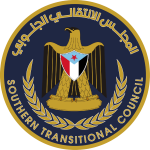Ambassadors of the Political and Security Committee
CC: Middle East/Gulf Working Party (MOG), European Union External Action, Directorate-General for International Cooperation and Development, Directorate-General for European Civil Protection and Humanitarian Aid Operations
11 May 2020
Your Excellencies,
I wish to update you on the situation in South Yemen, and the efforts of the Southern Transitional Council (STC) to support the population in the South amid the deteriorating situation on the ground, including threats from COVID-19. On 25 April, the STC declared self-administration in the South. This was not a decision that we took lightly, but one that became necessary. I am writing to explain the rationale behind this step and how we see the way forward. I want to reassure you of the STC’s commitment to working with international partners to find solutions that will promote greater prospects for durable peace and improve living conditions for ordinary people, and to ask for your help in achieving this.
I can appreciate that some Member States of the EU may question our decision to declare self-administration, but it is important to put it into the appropriate context. There are in particular four issues:
First, the humanitarian situation had become intolerable in the South. As the UN’s humanitarian chief, Mark Lowcock, briefed the UN Security Council on 16 April, the humanitarian situation in the South, as across Yemen, is dire. As he highlighted, the consequences of COVID-19 risk bringing famine to Yemen. Deadly flash floods on 21 April compounded the situation, devastating large parts of Aden in particular. Beyond the tragic loss of life, many in Aden remain homeless and are living in makeshift homes, on top of the already large IDP population in the South. All of this unfolded as we try to contain a COVID-19 outbreak in the South and the catastrophic impact it would have.
Unfortunately, instead of working to manage the humanitarian crisis, the government made it worse. The government’s incompetence, financial negligence and large-scale corruption are not new. Civil servant salaries have remained unpaid for months. Basic services are neglected and degraded. The population lacks sufficient sanitation and potable water. The tipping point was reached when the government cut off the electricity supplies to the Southern population. This act of collective punishment drove Southerners to the streets to protest en masse, and compelled us to step in to restore basic services and protect civilians. What is clear is that the government is at best incapable, or at worse unwilling, to ensure the safety and well-being of Southern civilians. This is a status quo that will no longer be tolerated in the South.
Second, the security situation has deteriorated, and the government is a driver of the problem. A cessation of hostilities was – and remains – essential both to create the space to tackle COVID-19 and to open the way to a political solution for the conflict in Yemen. The STC was the first actor in Yemen to support UN Secretary-General António Guterres’s call for a global ceasefire. And we coordinated with Southern forces to ensure their implementation of a ceasefire. Yet we find ourselves the targets of attacks both by Houthi forces in Al-Dhale’, and in parallel by government-backed forces in Abyan and Shabwah – attacks that are dangerously ongoing. With the government both unable to ensure security in the South and itself acting as a source of insecurity, we deemed it necessary to intervene to ensure the security and safety of civilians in the South. The risk of further escalation remains clear.
Third, the government shows no sign of genuinely implementing the power-sharing arrangement set out in the Riyadh Agreement. It was not easy to reach the deal made in Riyadh. The end result may not have been perfect, and it was ambitious in parts. But we committed to the process in good faith. Not only has implementation been slow, the Agreement has been actively violated. As an example, the government has blocked attempts to nominate new governors and security chiefs. It has also refused to engage in forming a new joint Cabinet, as per the Riyadh Agreement, and has continued with threatening troop movements in and around Aden. Furthermore, monitoring of the Agreement was one-sided – we were told to implement, while the government was free to violate without consequences.
That said, the Riyadh Agreement remains one track for achieving a lasting Yemen-wide solution. We welcome the words of commitment to the Agreement from our regional allies. Still the Agreement was always a means to an end, not an end in and of itself. If the Agreement is to survive, implementation must progress swiftly and it needs to reflect the realities on the ground. In the meantime, in the absence of a working Agreement, we decided to take action to ensure proper governance in the South.
Fourth, while the humanitarian and security situation in the South deteriorates, we see little effort to secure the long-term solution needed: a negotiated settlement that adequately addresses the needs of the South. We have become concerned that the Southern issue is not being addressed through the UN-led process, while the Southern voice remains excluded from the negotiating table. The absence of a realistic political horizon, combined with the worsening humanitarian and security situations and a government that is not respecting agreements it has made has meant that, for now, we have to step in because the needs of the South cannot wait indefinitely for a process that currently doesn’t take account of the Southern perspective. The Southern people are clear on this front and are determined to see their voice represented at the negotiating table.
Your Excellencies, the EU’s leadership across political, humanitarian and development efforts is now more urgent than ever. The decision to declare self-administration need not curtail the essential EU role in helping to alleviate the dire conditions endured by ordinary people in the South and to provide hope for a better future. Specifically we urge you to:
(i) Support the COVID-19 response. We understand priority in Europe now is addressing the impact of the pandemic on your citizens and their safety. But with a global pandemic that does not recognise borders, vulnerable communities (such as those in the South), are the biggest challenges and weakness points in the global response. As such, these communities require the greatest support. Our worst fears are starting to turn into reality with the growing number of Coronavirus cases in the South. We are working with the UN and other agencies to treat the infected and protect the population. We need urgent support, particularly personal protective equipment, testing kits and ventilators, and for this support to be expedited as we are only at the start of the ‘curve’ in the South. This approach is necessary to enable the medical facilities to tackle COVID-19 on top of the uptick in diseases like Dengue fever.
(ii) Earmark specific humanitarian funding for the South. While we manage the COVID-19 risk on the ground, the broader humanitarian situation remains critical. We are deeply concerned by reports that cash flow issues threaten to interrupt and, in some cases, stop UN programs in Yemen all together. We urge the EU to strengthen its contributions to the UN response plan, including designating specific funding for the South, with a particular emphasis on turning pledges into concrete delivery on the ground. Without this, the population in the South and across Yemen stands little chance to weather the potentially colossal impact of Coronavirus.
(iii) Intensify the response to development needs in the South, addressing decades of under-investment. The debilitated infrastructure is a key factor exacerbating the situation in which we find ourselves now. In this regard we appreciate the development projects funded to date by the EU in the South. With the self-administration, the STC is committed to ensuring such projects are fully implemented and we will support your activities wherever we can. In the immediate term, the urgency is on the provision of basic services for our people. Already the power plant in Aden has been restarted and electricity has been restored. But the capacity of our infrastructures and processes on the ground remain willfully under-resourced. Much more work is needed to ensure electricity, water management, and sanitation across Southern governorates. This is an area of expertise where the EU can play a critical role on the ground, and we stand ready to engage and facilitate whatever access EU partners and implementers need.
Against this backdrop, our aim remains for a comprehensive and sustainable political solution for Yemen, delivered through the UN-led process, which properly addresses the Southern cause. It is self-evident that in order to reach such a deal, we must be invited to participate in the process. The recent developments in the South only emphasize that the Southern issue cannot be further excluded from the UN track. Southern grievances will only grow the longer a genuine solution for the South is delayed. We ask that the EU reiterates this as a priority in its engagement on Yemen. As we have consistently signaled, we stand ready to play our part in any meaningful dialogue.
I have copied this letter to the Middle East/Gulf Working Party and colleagues across the Commission (EEAS, DG DevCo and DG ECHO).
Sincerely,
Ahmed Omer bin Fareed
EU Representative
Southern Transitional Council




